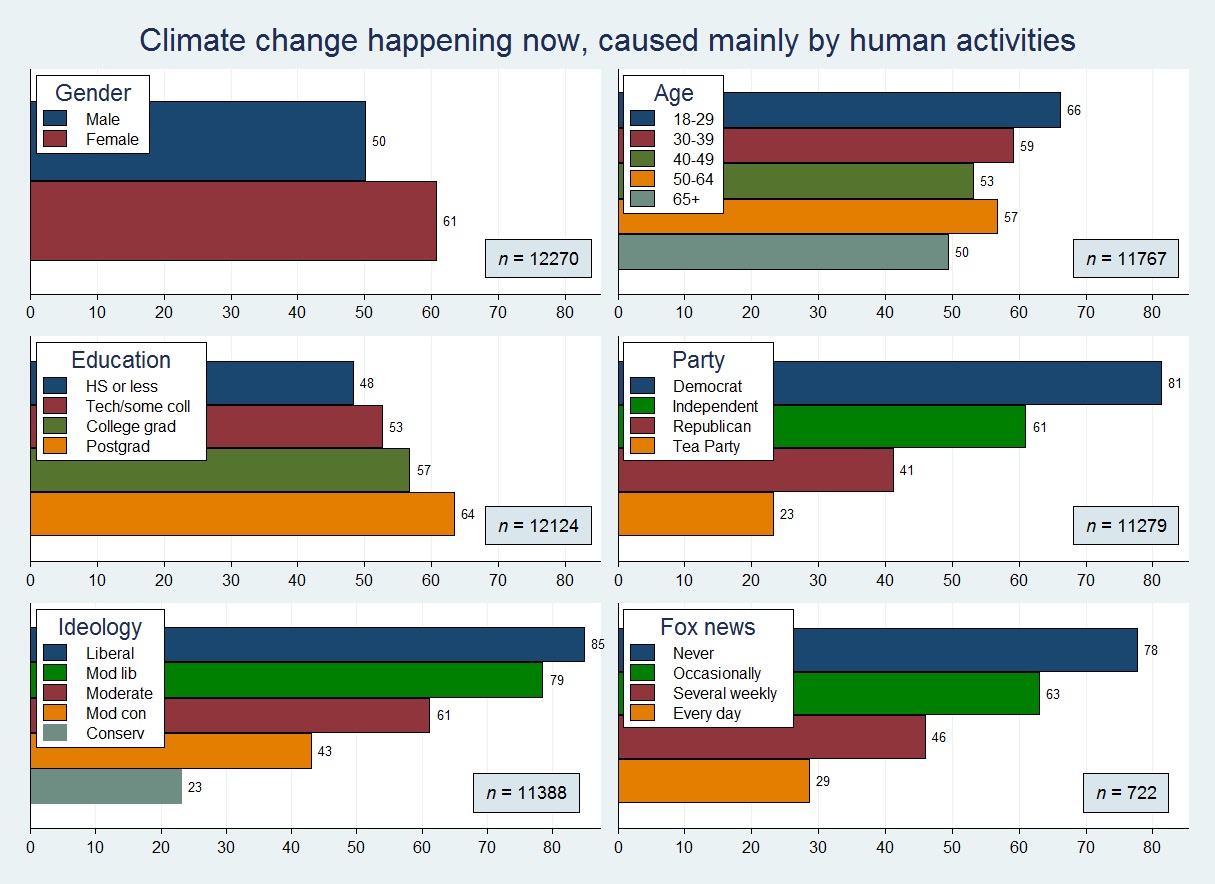A new research paper analyzing 35 surveys from 2010 to 2015 about climate change has found some obvious correlations with political beliefs (liberals are much more likely to agree that it’s a human-caused problem* than are conservatives) and education (the more schooling you’ve had, the more you agree it’s a human-caused problem). But it also finds a big complication, because well-educated people are better at finding information that supports and reinforces their previously held beliefs.
Lawrence Hamilton, a senior fellow at the Carsey School of Public Policy at UNH and senior author of the paper, describes the complication this way in this blog post:
After politics, education is the second-strongest predictor of views on climate. But politics can neutralize or even reverse the effects of education. College-educated respondents more actively assimilate information in accord with their prejudices, whether these prejudices incline them toward scientific or ideological sources.
Among Democrats and Independents, agreement with the scientific consensus rises with education. Among Republicans, agreement with the scientific consensus does not rise with education, and sometimes even falls. This fall becomes steeper if we separate Tea Party supporters into their own group.
This isn’t a phenomenon unique to conservatives or the climate change debate. The anti-vaccine community shows a similar effect but skewed to liberals: The more educated a liberal is, the more likely he/she/it is to disagree with the scientific consensus that vaccines are safe and effective.
This is kind of depressing – no, what am I saying? It’s wicked depressing. Education is supposed to be an all-powerful tool to defeat human foibles and weaknesses, but in some cases it can actually exaggerate those foibles. Ugh.
Here’s the paper, titled “Tracking Public Beliefs about Anthropogenic Climate Change,” published in PLOS One, an open online journal.
*which it is, of course


 Return to the Concord Monitor
Return to the Concord Monitor